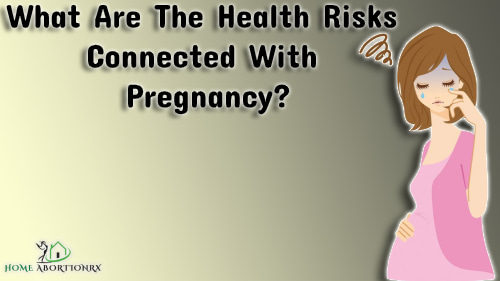
Overview: Every pregnancy has some risk but good support and prenatal care can help you to lower those risks. Factors like overall health, age, and other issues can increase the possibility of experiencing complexities during pregnancy.
Reproductive Health and Abnormalities:
Basic problems in the cervix or uterus can heighten the risk of complications or reproductive health issues like an abnormally positioned fetus, miscarriage, and difficult labor, etc. these problems can also increase the chances of cesarean delivery.
Women below the age of 20
Women below the age of 20 have a significantly huge risk of severe medical complications linked to pregnancy than those over 20. Teenage women are most likely to have;
- A baby with low birth weight
- Develop preeclampsia
- Deliver prematurely
- Experience pregnancy-induced hypertension
Some risk factors linked to a young age and health risk associated with pregnancy comprise of the following;
Nutritional Deficiencies: Young women are more prone to have inadequate eating habits. Nutritional deficiency can commence to extra strain on the body that causes problems for both the mother as well as the child.
Undeveloped pelvis: Young women’s bodies are still developing and changing. So an underdeveloped pelvis can lead to difficulties during childbirth.
High blood pressure: Increasing high blood pressure in gestation can trigger premature birth. This can lead to underweight or premature babies who require good care to survive.
Women above 35 years of age
As you age, your indications of conceiving begin to decrease. An older woman who gets pregnant is also less prone to produce problem-free fertility.
Current issues comprise of the following:
Underlying Conditions: Older women are more prone to have conditions like diabetes, high blood pressure, or cardiovascular disease that can hinder pregnancy when these conditions are not well controlled, they can provide to miscarriage, birth defects, poor fetal growth.
Chromosomal Problems:
A woman above 35 years has a greater chance of holding a child with birth deformities due to chromosomal issues. Down Syndrome is the most general birth problem related to chromosomes. It leads to different degrees of physical abnormalities and intellectual disability. Prenatal tests and screening can help decide the likelihood of chromosomal developments.
Weight:
Being overweight and underweight can also lead to pregnancy problems.
Obesity
Ladies who are overweight are at a higher danger than ordinary weight ladies of having babies with certain birth effects, including:
1- spina bifida
2- heart issues
3- hydrocephaly
4- congenital fissure and lip
Hefty ladies are additionally bound to be determined to have gestational diabetes during the pregnancy or to have hypertension. This can prompt a littler than an anticipated child just as increment the hazard for preeclampsia.
Underweight
Ladies who weigh under 100 pounds are bound to give birth to an underweight child deliver prematurely.
PCOS (Polycystic Ovary Syndrome)
PCOS (Polycystic ovary syndrome) is a hormonal problem that source irregular periods and your ovaries to not function correctly. Pregnant women with PCOS have a greater risk of premature delivery, preeclampsia, gestational diabetes, and miscarriage.
Takeaway:
While every gestation has risks, some circumstances such as weight, age, and preexisting medical issues can lead to an extended risk of complications. So if you come into any of these categories, you should consult it with your medical practitioner as it will help you to get proper assistance.
